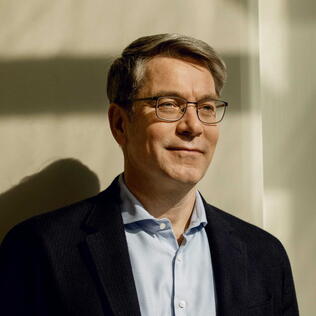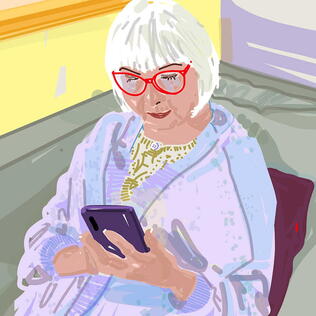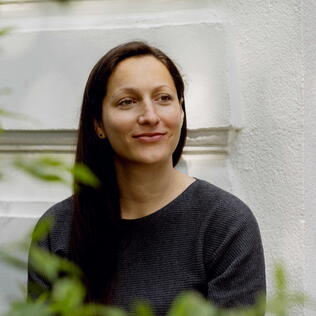Werner Otto: Ambitious, humane, and loyal to our principles
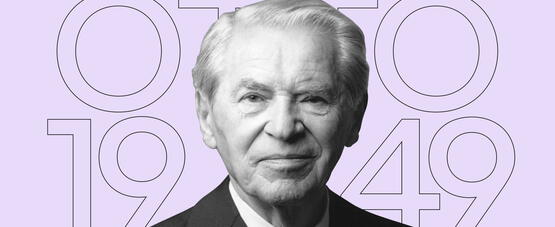
The values of the Otto Group, its spirit of innovation, and its focus on customers can all be traced back to one person. The spirit of the company founder Werner Otto is still alive today in the company’s business activities and working atmosphere.
On August 17, 1949, four days after his 40th birthday, Werner Otto registered the “Werner Otto Versandhandel” (Werner Otto mail-order sales company) at the Hamburg State Ministry of Economy and Transport for the fee of one German mark. The company headquarters was made up of a few barracks in Hamburg-Schnelsen, and the original business model focused on having representatives sell shoes that had been made by hand in the German region of the Palatinate. The shoes flew off the shelves and sold so quickly that Otto set about expanding the sales market just one year later with the publication of the first OTTO Catalog— the foundation upon which the company experienced enormous success in the years and decades to come. By 1952, sales at the mail-order company OTTO had already reached their first million and then continued the upward climb from there.
Built from scratch
The man behind this enormous success, Werner Otto, was a natural-born businessman. Having worked for his father in his general store in Prenzlau in the German state of Brandenburg, his understanding of numbers and calculations developed from an early age. Otto, however, was not one of those post-war business tycoons who was born into success. His father was forced to close his store during the chaos of the Weimar Republic. Werner Otto himself had already failed in business a number of times before he gave it another go—and did everything right with the mail-order sales company. He built it from nothing. And he did it all without an inheritance, with a lot of hard work and innovative spirit, and with a special sense for something later to be known as “corporate culture.”
An understanding of corporate culture
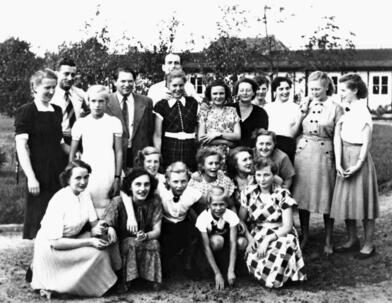
Werner Otto always viewed himself a team player and less as a boss. He even glued photos into the first catalogs when they were put together. A cooperative and friendly working environment was the most important thing for him. Grog was sometimes served during harsh winters—as it was seen as being good for your health in the 1950s. In 1956, he introduced the five-day work week into the company as the standard. And in the early 1960s (long before “onboarding” existed), it became standard to cordially welcome new employees to the company, with Werner Otto greeting them with a very lovingly designed brochure entitled “Auf gute Zusammenarbeit” or in English “Here’s to a successful cooperation.” He reminded managers to “provide technical guidance to all department employees and teach them about the meaning and importance of assigned tasks.” Otto didn’t care for plain obedience or for slaving away at work. He knew that people are most productive when they find their work meaningful, when they can contribute their own ideas, and when they feel that their voice is heard and valued, and for all that, Otto was thus far ahead of his time.
Staying flexible
Above all, however, Werner Otto understood right from the very beginning that a corporation can only be successful if it is and remains flexible and if it adapts to the ever-changing demands of business life. His personal motto was “Panta rhei” or “Everything flows.” Technical innovations were adopted early on at OTTO in order to handle the deluge of data caused by steadily growing sales, and because Otto knew that it is only possible to stand the test of time under highly competitive conditions if you can win over customers with first-class service, speed, and courtesy. A punch card system for data storage was introduced as early as 1955. In 1960, the first electronic data processing system, which—for that time—was highly modern, was implemented under the rather ponderous title UNIVAC UCT. The entire ordering process has been carried out electronically since then using modern solutions, of course, and not the original system. From 1962 onwards, customers were able to place telephone orders—a path that was then later pursued even further by boldly and resolutely expanding e-commerce.
Otto deliberately diversified the business to do this. In 1965, he founded ECE Projektmanagement GmbH—a development, construction, and management company for shopping centers in Europe that was completely independent of OTTO in terms of its operations and personnel. And OTTO itself also continued to develop. It evolved into a holding company which later became known as the Otto Group and still is today. The company has transformed into the world’s largest mail-order sales group throughout its history which stretches back more than 60 years. With 30 key Group companies, the Otto Group is primarily present in three economic areas—Germany, the rest of Europe, and the USA—and is one of the most innovative groups in the industry leading a course of expansion. Throughout the whole time, Werner Otto avoided making the cardinal mistake that many founders make: thinking of themselves as absolutely vital for day-to-day business operations. Instead, he placed great value on setting up highly qualified executive teams, who were able to work largely independently and on their own responsibilities. In 1981, Werner Otto passed the role of Chairman of the Executive Board onto his son Dr. Michael Otto, who had worked for the Group since 1971 after completing an apprenticeship at a bank and finishing his degree in economics.
Gratitude and a sense of solidarity
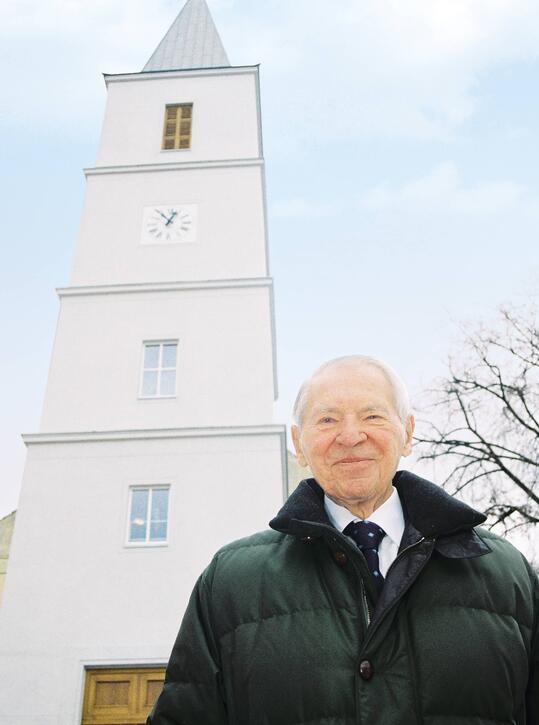
Werner Otto’s spirit as well as his ideas and visions continued to determine the fate of the Otto Group. The visionary may have become one of the most successful entrepreneurs in Germany within just a few decades, but he always took this success with a sense of humility, as if it was far from his mind to portray himself as a star businessman. He spoke instead of all the good luck he had experienced, and also of all of his employees’ outstanding achievements. And he felt the need to give back to society from an early stage. This motivation led him to found the Werner Otto Foundation in 1969, whose mission it is provide financial support to medical research projects at Hamburg hospitals. The Werner Otto Institute, which has been dedicated to the early detection and treatment of children and adolescents with developmental disorders since 1974, and the scientific treatment center for childhood cancer diseases at the University Medical Center Hamburg-Eppendorf have also benefited from this. Otto was involved in the rebuilding and renovation of churches and other buildings that had been destroyed by the war. Above all, however, he developed an early sense for having to protect the environment, and was once again ahead of his time in this matter as well. With all his might, he encouraged and supported his son Dr. Michael Otto in his endeavors to make active environmental protection a permanent part of the Otto Group’s business operations in the 1980s.
Admired as a businessman, loved as an individual
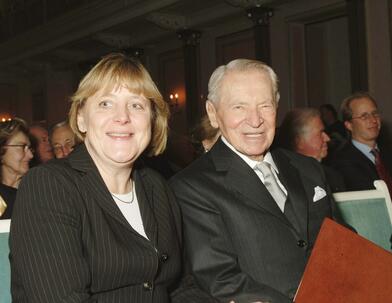
In 2011, Werner Otto died at the age of 102 in Berlin. Otto was not only a well-loved family man and highly respected boss. He received countless awards for both his person and his work throughout his lifetime. Otto was bestowed with the Grand Cross 1st class of the Order of Merit of the Federal Republic of Germany, the gold Ehrendenkmünze (honorary commemorative medal), and the Bürgermeister-Stolten-Medaille (Mayor Stolten Medal) of the Hamburg Senate, the honorary title “Professor of the Free and Hanseatic City of Hamburg,” the Ernst Reuter Medal of the Berlin Senate, as well as the Konrad Adenauer Foundation’s “Social Market Economy” prize for his entrepreneurial activities. His friend and former Chancellor of Germany Helmut Schmidt summed up Otto’s memory with the following words: “Werner Otto is the bright sides of recent German history all wrapped up in one person. A great businessman, but also a man with a mind for politics and a sense of duty to the res publica.”



